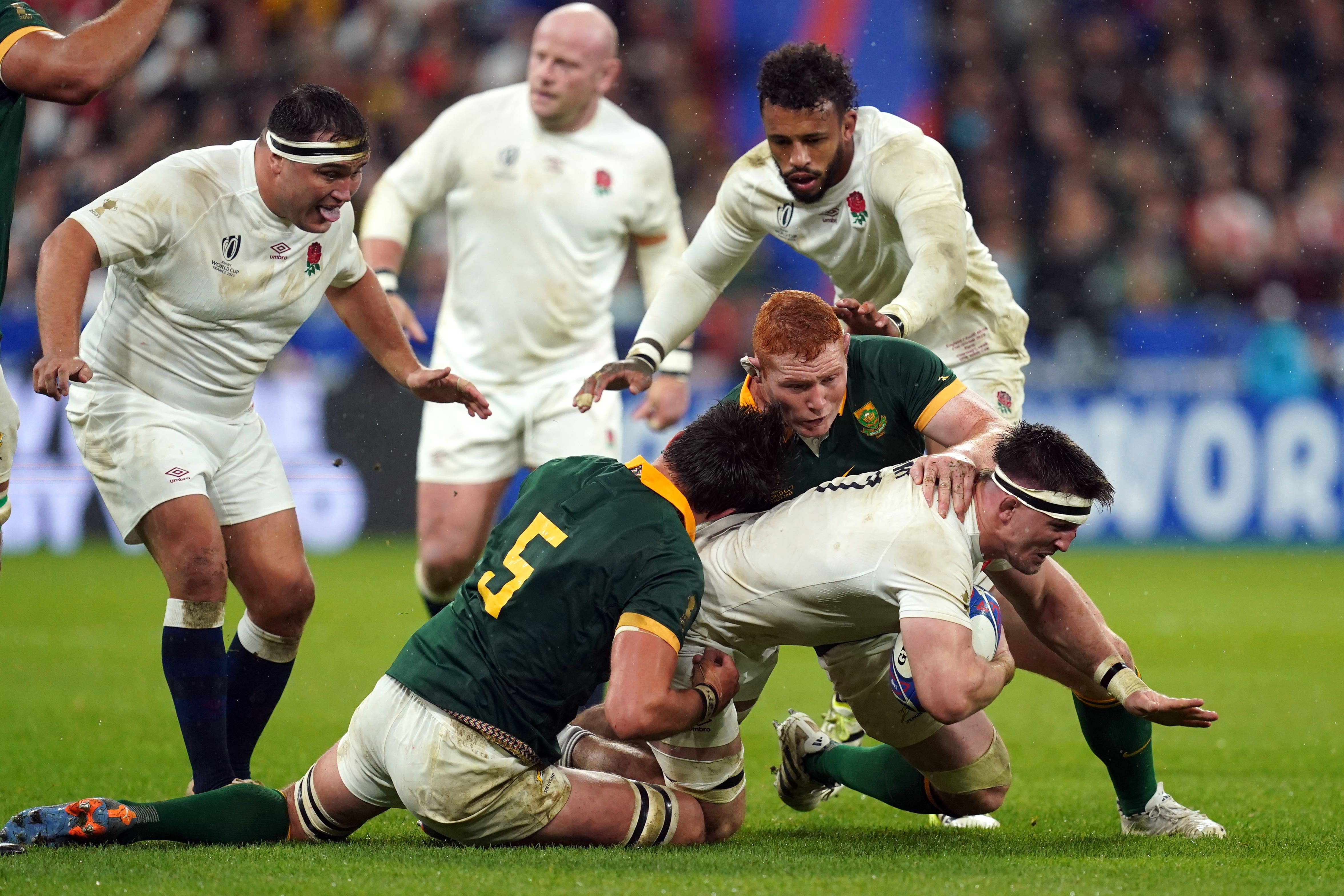Rugby gets huge overhaul with new Nations Championship and expanded World Cup
World Rugby announced a new biennial competition in men’s rugby and the World Cup being expanded to 24 teams

World Rugby has unveiled plans for a new ‘Nations Championship’ that it believes will “enhance” the men’s international game.
The new biennial competition will begin in 2026 and feature a top division of 12 teams, comprised of the Six Nations, the four Rugby Championship sides and two more participants, likely to be Japan and Fiji.
The winner will be determined after a series of one-off fixtures in a grand final.
Beneath this will sit a second-tier competition run by World Rugby containing 12 more countries, but movement between the two divisions will not begin until 2030.
The competition has been made possible by a historic agreement over a global calendar, the first time this has been in place in the men’s game, which was narrowly voted through at a World Rugby Council meeting in Paris on Tuesday morning. A global calendar for women’s Test rugby has also been clarified.
Additionally, the 2027 World Cup will be expanded to 24 teams, four more than were involved in this year’s tournament in France, with the draw to be held in January 2026.
Australia will host the tournament between over a six-week period between 1 October and 13 November. A Round of 16 will be introduced with the top two teams from each pool automatically qualifying along with the best four third-placed teams.
“It is fitting that we finish Rugby World Cup 2023, the sport’s greatest celebration of togetherness, with the sport’s greatest feat of togetherness,” said Bill Beaumont, World Rugby chairman. “Agreement on the men’s and women’s global calendars and their content is the most significant development in the sport since the game went professional. A historic moment for our sport that sets us up collectively for success.
“We now look forward to an exciting new era for our sport commencing in 2026. An era that will bring certainty and opportunity for all. An era that will support the many, not the few, and an era that will supercharge the development of the sport beyond its traditional and often self-imposed boundaries. I would like to thank all my colleagues for their spirit of collaboration. Today, we have achieved something special.”
The new Nations Championship is likely to bring about the end of traditional touring, other than the quadrennial British & Irish Lions visits to New Zealand, Australia and South Africa.
The new competition will be played in the July and November windows – clubs will now be required to release their players for international duty across four weeks in the northern hemisphere autumn, rather than the current three.
One of the Six Nations rest weekends is understood to be likely to be cut from the calendar as a knock-on impact of the extension to the November window, while the Rugby Championship may move to a closer alignment with the equivalent European competition.
Elsewhere, a revamped and expanded Pacific Nations Cup competition will begin in 2024, featuring Canada, Fiji, Japan, Samoa, Tonga and USA. Japan and the USA, which will host the 2031 and 2033 men’s and women’s World Cups, will alternate as finals hosts.
A unified global calendar has long been considered the holy grail for rugby’s administrators given the issues a crowded club and country schedule provides from a player welfare perspective, while a joined-up approach should also increase the sport’s commercial potential.
The plans have attracted significant criticism, though: under particular scrutiny has been the lack of opportunities the new calendar may provide emerging nations to test themselves against men’s rugby’s established powers.
The president of Rugby South America, Sebastian Pineyrua, last week told the Daily Mail that it could be “the death of rugby”. Under the current plans, the earliest a team outside of the top 12 could gain access to the top tier would likely be 2032.
Subscribe to Independent Premium to bookmark this article
Want to bookmark your favourite articles and stories to read or reference later? Start your Independent Premium subscription today.

Join our commenting forum
Join thought-provoking conversations, follow other Independent readers and see their replies